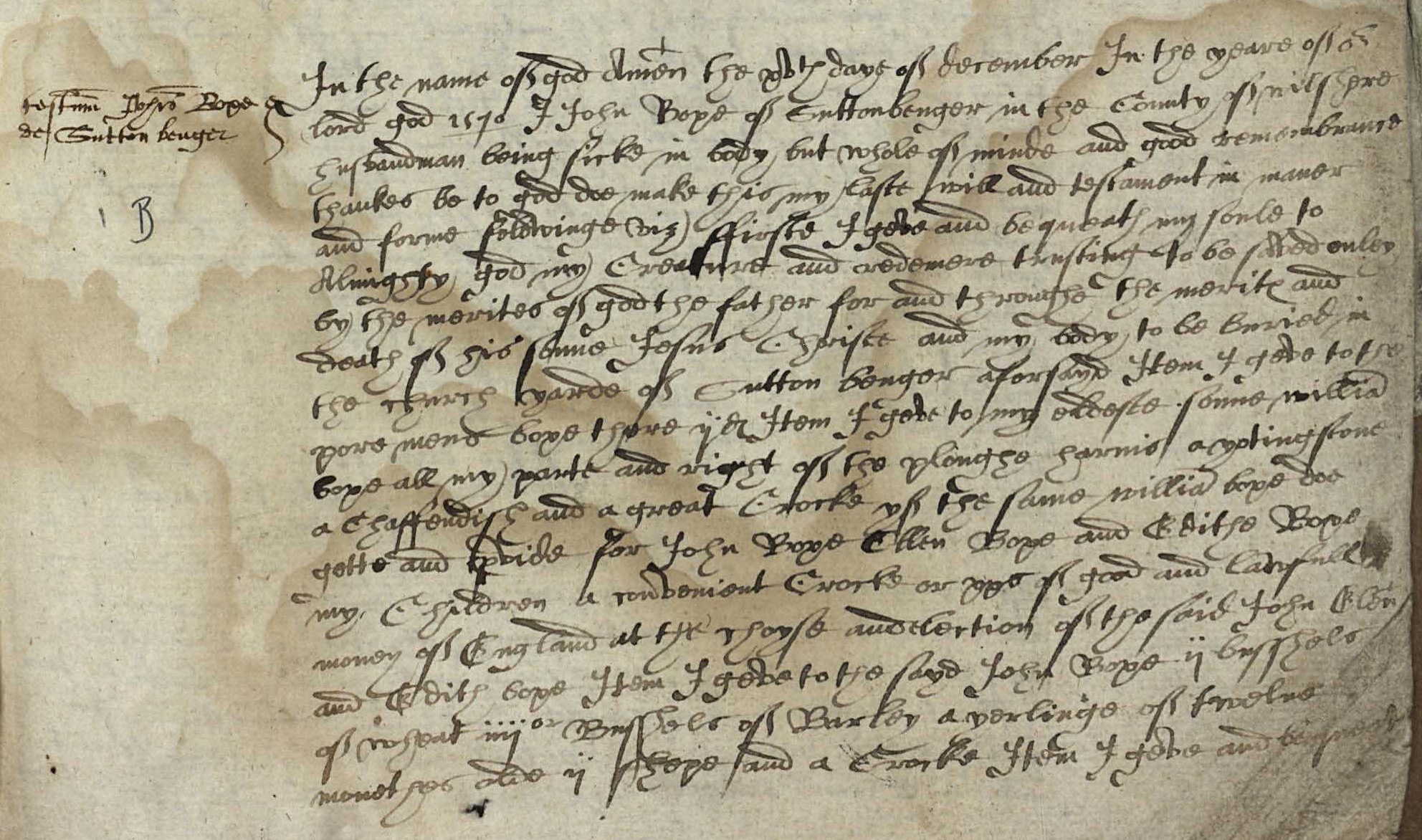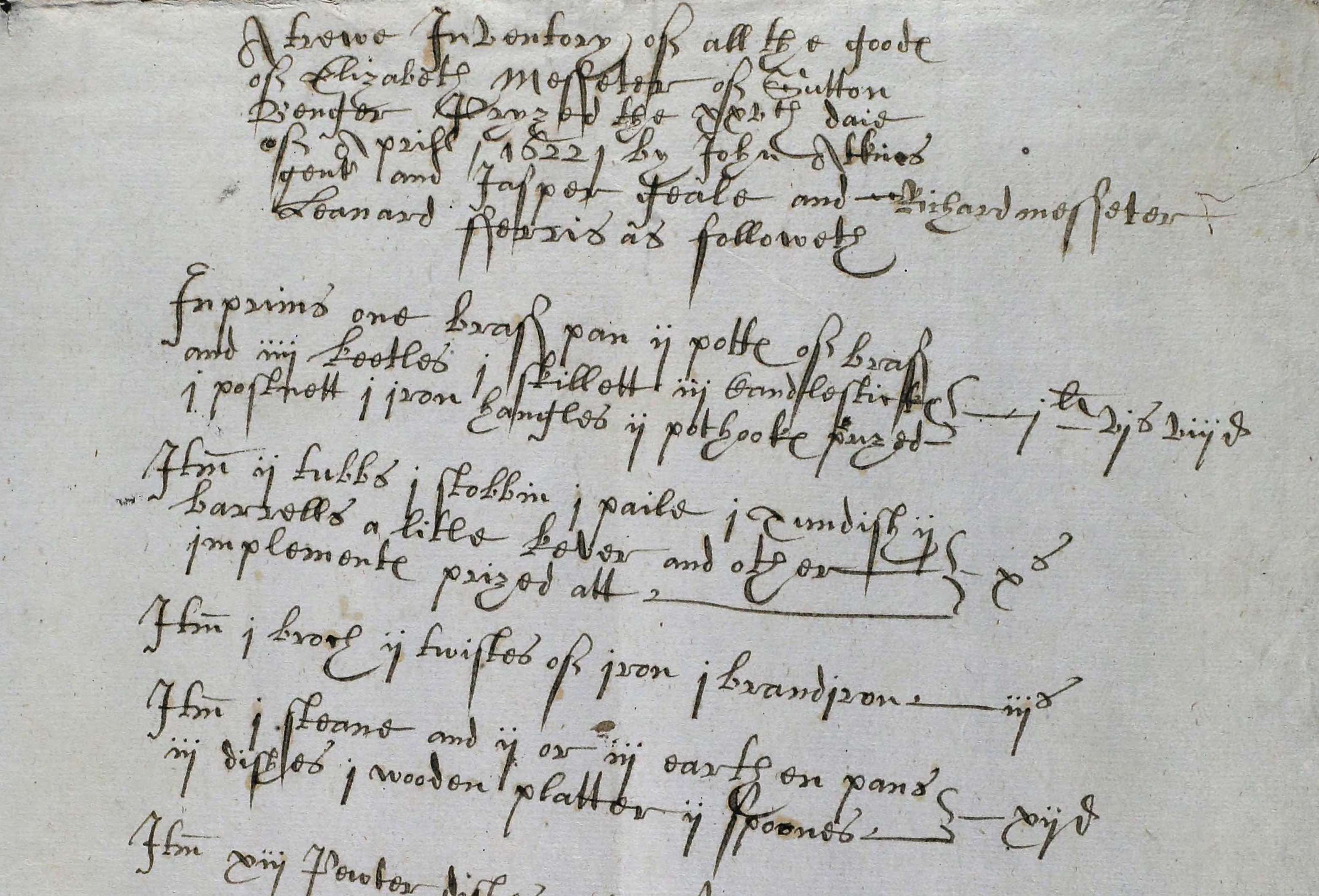Wills and Inventories
Page last updated: 25 November 2023, 9:49amIrrespective of their wealth and status, many people used to write their Last Wills and Testaments in the 1600s - 1800s; and many of these documents survive in the Archives. They are a rich source of information about the way that 'the ordinary people' lived. The following Will is that of John Box, dated December 1570; it is possibly the oldest surviving Will of anybody from Sutton Benger.

The majority of the Wills are accompanied by Inventories of 'the worldly goods and chattels' of the deceased person. It is often possible to tell from these Inventories how big their house was, or what the occupation of the deceased was. It is fascinating for us to read them today, in this modern age where everything is thrown away after a few years. Items which, today, we would consider trifles, had a value and would be 'appraised' as part of the Inventory, and would be sought after by surviving friends or relatives. They are often slightly more difficult to read, as they sometimes use a mixture of English and Latin - note especially the numerals in the following 'true inventory of all the goods of Elizabeth Messeter of Sutton Benger ... 1622'. The first line begins with 'First' and succeeding lines begin with 'Item'. A 'j' replaces an 'i' for one, and in numbers up to 4 (iiij).

Wills & Inventories
Discover more articles in the history index.
History Index